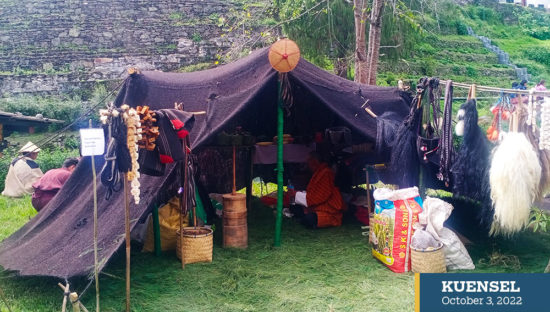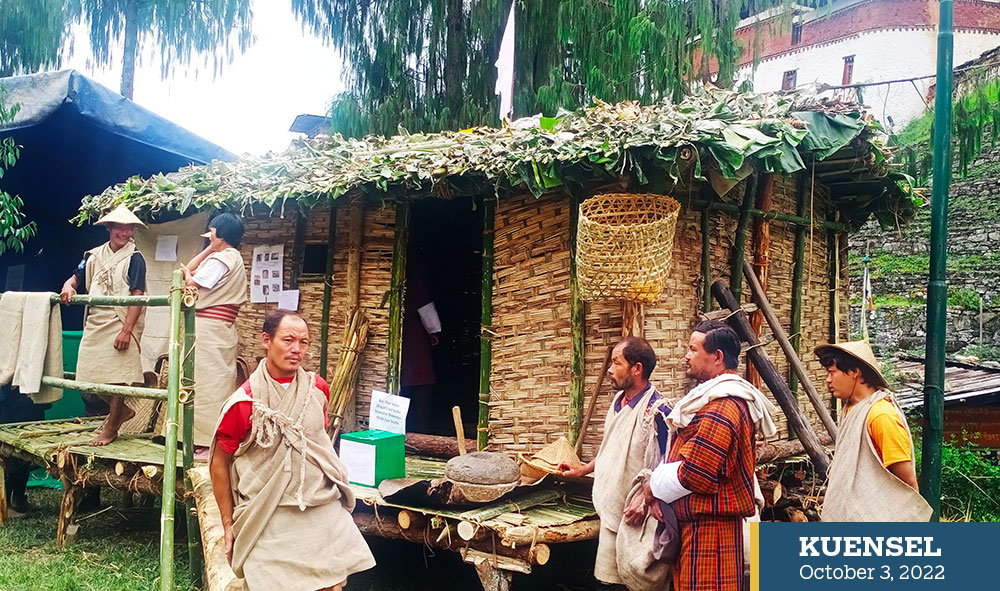Thinley Namgay
Hundreds of residents from the five gewogs of Trongsa displayed various aspects of their lives and livelihoods at the first-ever Black Mountain Festival that ended yesterday in Trongsa.
Organised by the Trongsa dzongkhag administration, the two-day festival displayed arts and crafts, food items, farm produce, authentic cultural items, lifestyle and flora in the dzongkhag.
The festival was also to help locals sell their products and also an opportunity for the local shopkeepers to boost their sales.
Gyeltshen, 70, from Nubi, said, “I sustain selling yak butter, cheese, fur, chugo (dried cheese), zoetey (fermented cheese) and meat. Agricultural activities are limited in my village owing to cold weather and wild animals.”

Locals display various arts and crafts products
Gyeltshen brought yak products to the festival. He said the festival helped him earn some cash. “The festival is an opportunity for a farmer like us. We still have difficulty in selling the products due to proper road accessibility.”
He said that yak rearing is declining in Nubi and such a festival could revive the culture. “Youth are not following our footsteps today. I am worried.”
As Bhutan started receiving international visitors recently, the festival is intended to exhibit its potential. Currently, international tourists visit mostly urban areas.
Another resident from Nubi, Sangay Wangchuk, who displayed Tashi Gomang, said he is expecting tourists in his village.
“We’re maintaining the old Tashi Gomang and also making new ones in the village. I brought Tashi Gomang so that other people can also learn about our village,” he said.
Prime Minister Dr Lotay Tshering, who inaugurated the festival, said that it was important to protect culture and tradition and that the responsibility falls on every Bhutanese.
Trongsa Dzongdag Phub Rinzin said: “Trongsa has important religious sites, Black Mountain range, flora and fauna, and birds, among other attractions.”
“There are many local dialects and people’s lifestyles are unique,” said the dzongdag. He said that the festival is expected to enhance the economy of the Trongsa dzongkhag in the future.


